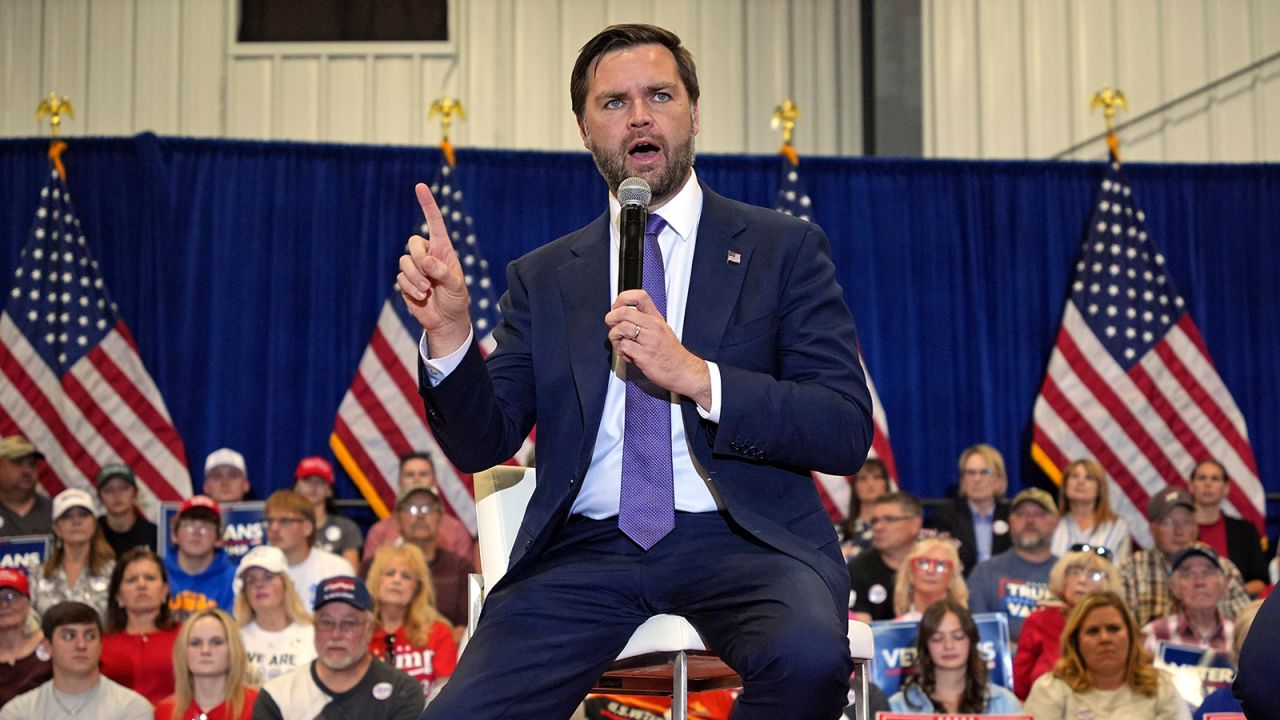In a recent interview with Joe Rogan, JD Vance, Republican vice-presidential nominee, touched on a range of divisive issues, including LGBTQ+ rights, transgender medical care, and college admissions. Vance claimed that he and Donald Trump could potentially win over the “normal gay guy vote,” suggesting that many in the gay community feel alienated by current progressive policies on transgender healthcare.
He criticized the idea of administering pharmaceutical treatments to young children transitioning genders, framing it as something that overreaches to what the gay community had advocated for. Vance implied that these policies go beyond inclusivity, raising concerns that they could push away moderates who don’t align with such measures.
The discussion, coming on the heels of Trump’s own three-hour interview with Rogan and just before Election Day, focused heavily on issues around gender identity and children.
Vance used an analogy, humorously suggesting that he wouldn’t take his young child—who plays pretend as a dinosaur—to a “dinosaur transition clinic,” to illustrate his opposition to what he considers extreme gender-affirming healthcare for minors.
He argued that children’s expressions should not necessarily prompt medical interventions, critiquing what he sees as an inappropriate involvement of medical professionals in such early stages of development. This approach reflects a conservative stance on gender identity, questioning the appropriateness of allowing or encouraging children to transition.

JD Vance
Rogan and Vance also shared concerns about religious influence in Western society, specifically around Islam and multiculturalism. Rogan expressed his worries about how religious customs, such as the call to prayer in Minneapolis, could potentially lead to the adoption of Sharia law, which he sees as incompatible with Western values.
Vance agreed, cautioning that large groups of immigrants who maintain separate religious practices could lead to what he described as “religious tyranny.” Both men voiced a belief that certain immigrant communities might resist assimilation and bring governance challenges, with Vance framing himself as a protector of traditional Western values.
Vance’s perspective on COVID-19 vaccines was another focus of the conversation, with him sharing personal skepticism about the vaccine’s impact on his health. He recounted becoming “the sickest” he’d been in years after receiving a dose, which led him to question mainstream views on vaccine safety and efficacy.
Although he took the vaccine, Vance said he now feels increasingly resistant to vaccine mandates, describing himself as “redpilled” on the issue. His stance aligns with the broader conservative viewpoint of individual freedom in healthcare decisions and resistance to what some see as overreaching mandates.
Beyond policy, Vance shared personal insights into his life since his nomination. He described a meeting with Trump where his potential vice-presidential candidacy was discussed, recalling that Trump had nearly announced Vance as his running mate at a rally in Pennsylvania.
Vance also discussed an assassination scare that led him to hurriedly secure his family, highlighting the intense security concerns of his new role.
Adjusting to constant Secret Service presence has been another change, Vance admitted, as he shared a lighter moment of watching Netflix with his family while agents patrolled outside. These experiences underscore both the personal and political dimensions of his campaign journey, as he adapts to the heightened visibility and security demands of the vice-presidential race.























